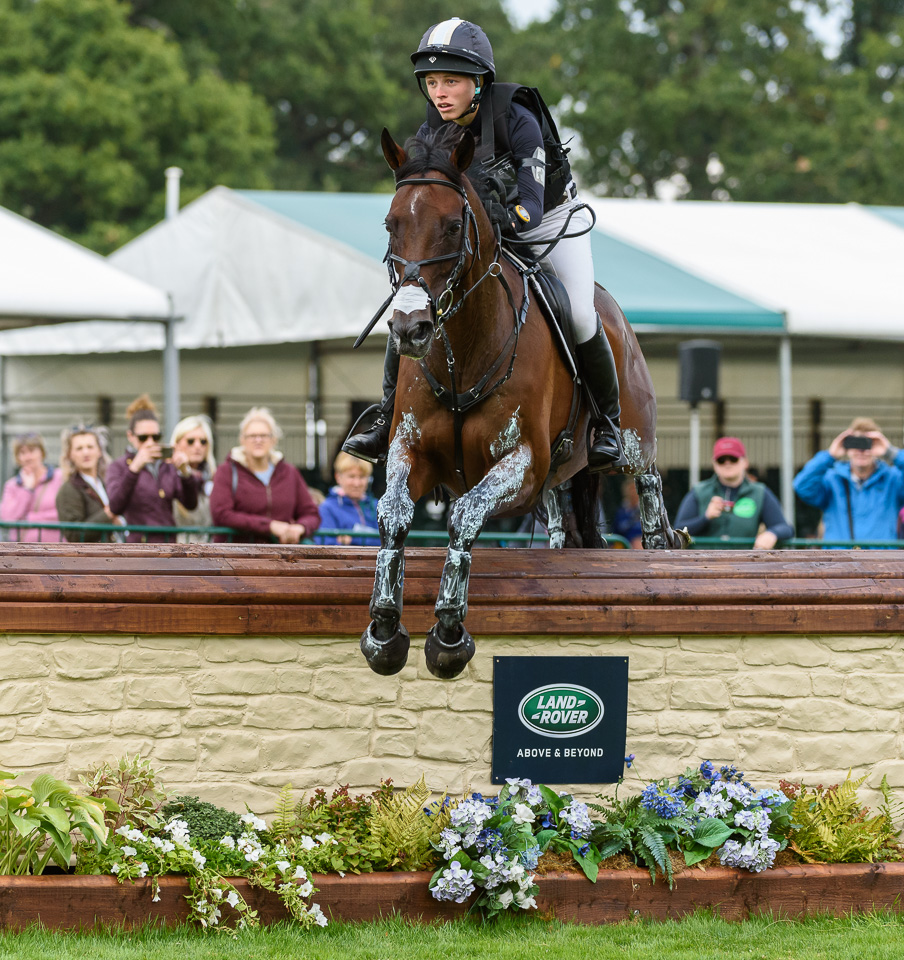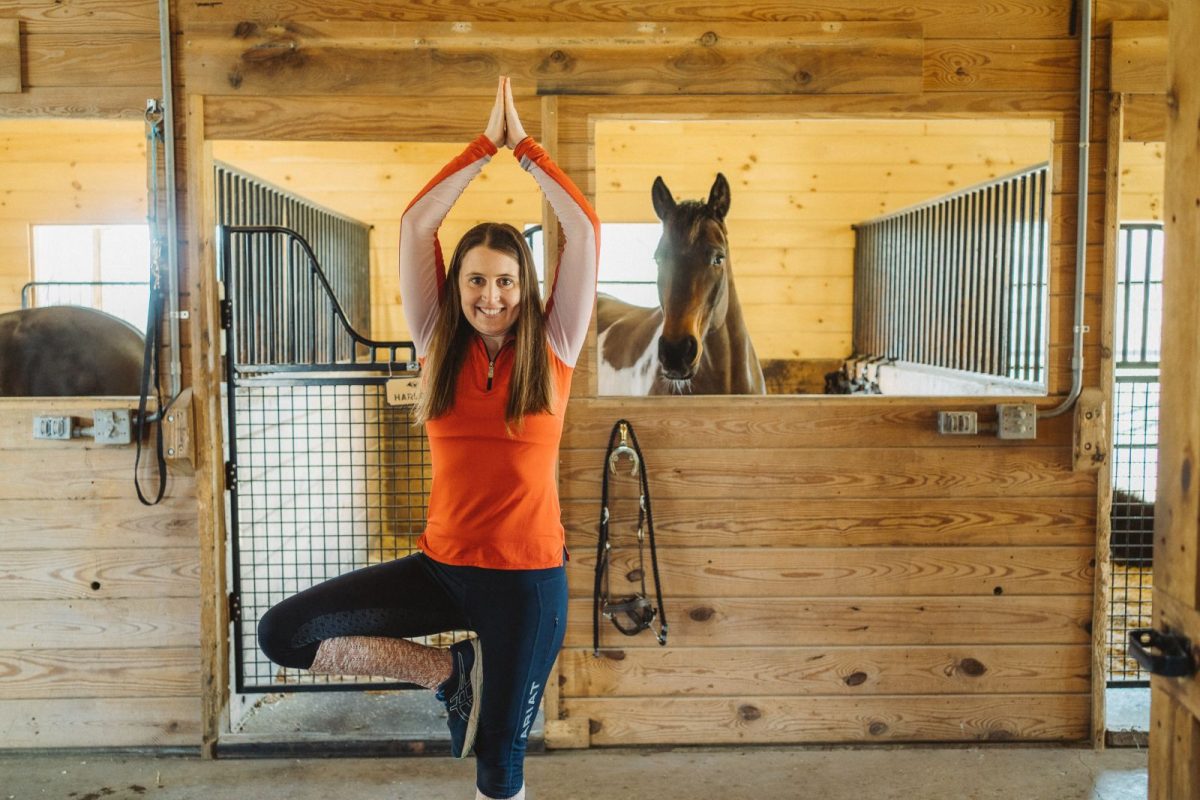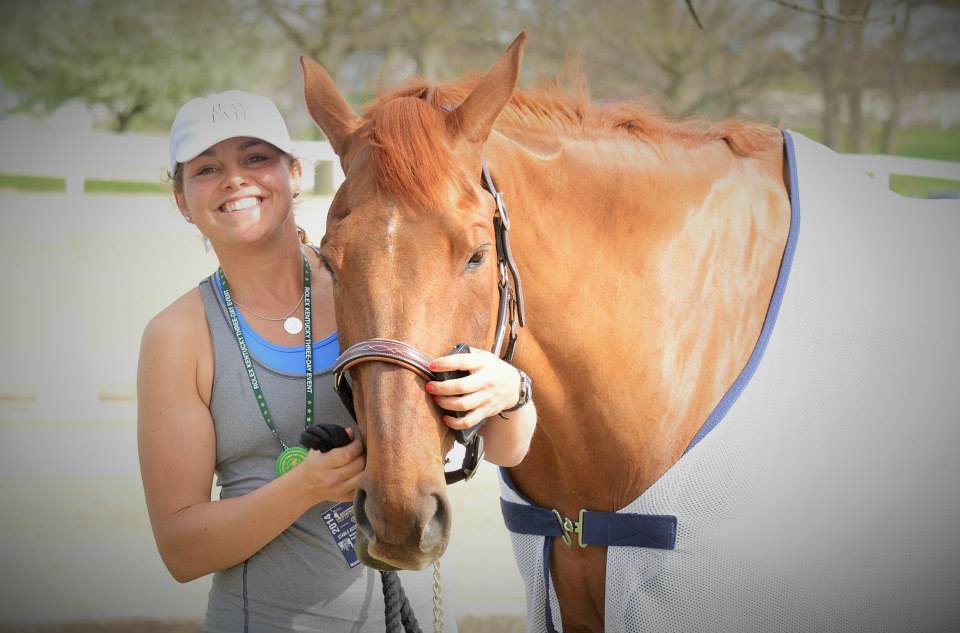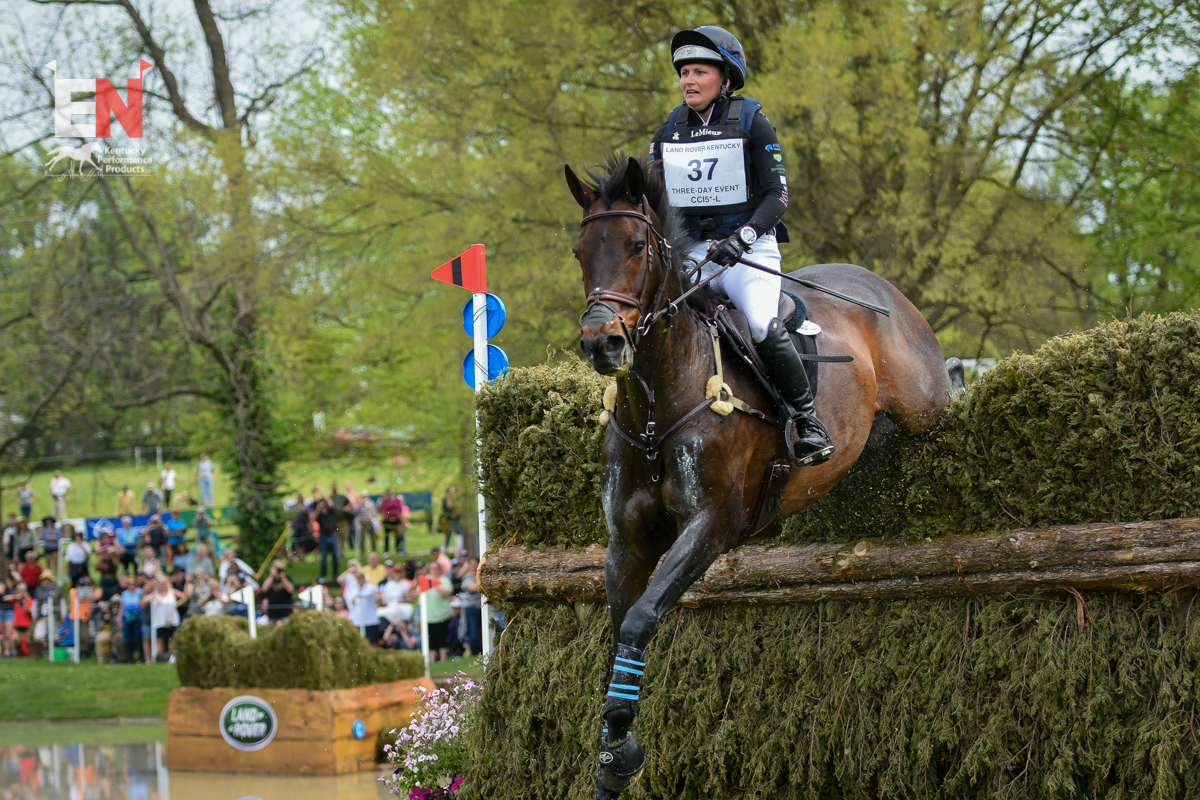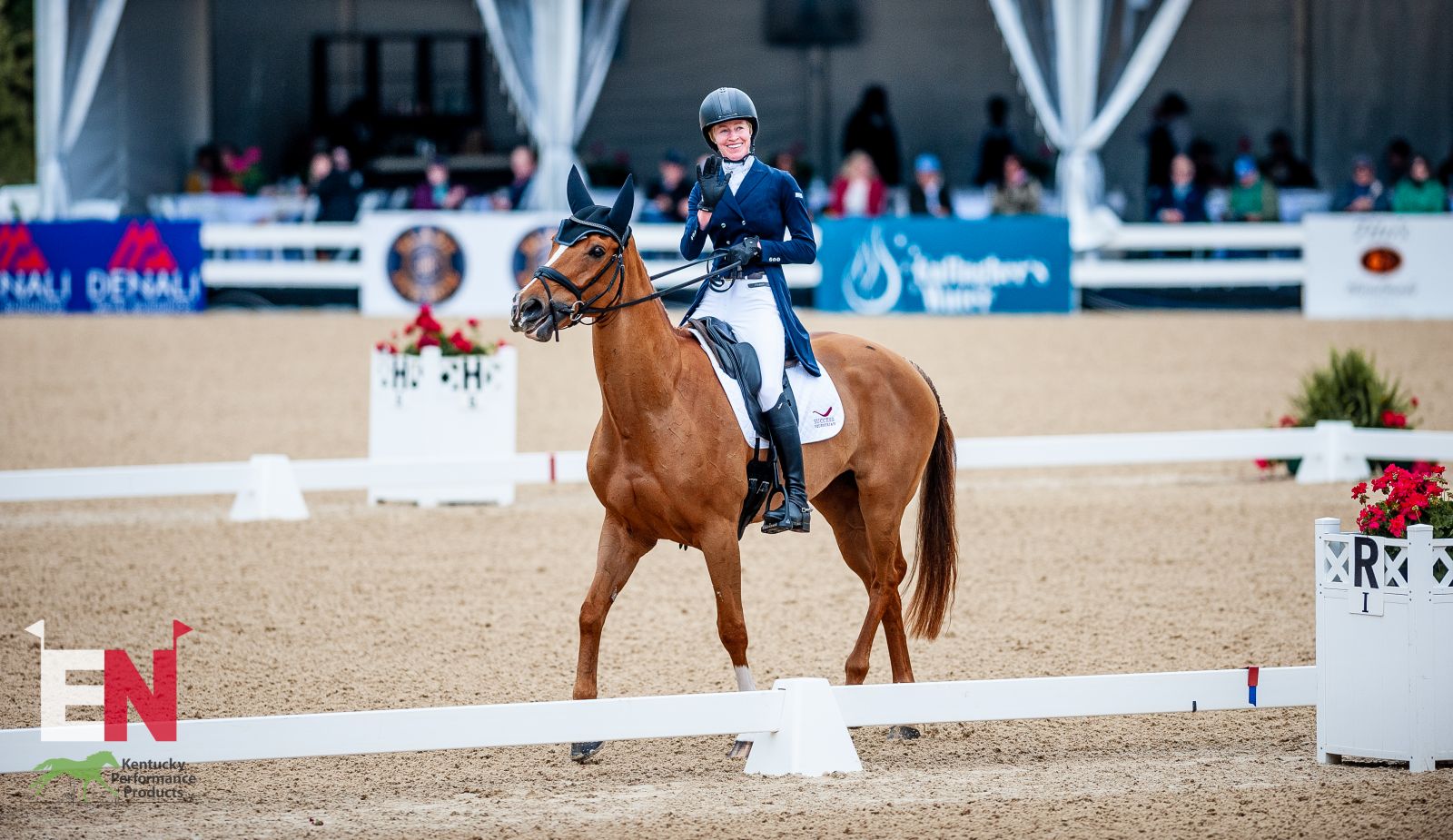These days, we often view each other’s lives through the lens of a highlight reel, glimpsing the incredible trips, impressive jumps, and moments we’re proud enough to share on social media. What we don’t often discuss is the immense pressure this places on athletes on both ends of the news feed. Riders, whether professional or not, feel compelled to post content that portrays them as cool and successful. As consumers of this content, we are left with a distorted perception that the sport is easy and that failure might suggest one isn’t cut out for it. These interviews are part of my mission to shed light on the reality of the challenges faced by everyone, regardless of their level, at some point in their journey.
On this edition of “Between the Ears,” I caught up with Lainey Ashker, who holds the esteemed status of being an Advanced level eventer and a Grand Prix dressage rider. Lainey continues to pursue excellence in both sports and has ambitious goals for the future. Her journey has seen its share of ups and downs, but one thing became clear during our conversation: she’s never giving up. So, armed with that grit and determination, let’s delve into her story…
[Catch up on more editions of this column here]
Can you tell me a little bit about how you got started with horses?
My mom has always been into horses, so naturally, she got me into them too. I participated in my first Prelim Championship while still in my mom’s belly when she was 7 months pregnant with me. I was practically destined to be an eventer, and I caught the horse bug easily. My mom supported my dreams by finding off-the-track Thoroughbreds for me to ride and train. We even relocated from California to Virginia to further my eventing career. Of the four horses I’ve taken to the 5* level, three have been OTTBs.
How did you end up branching off into pure dressage?
I always enjoyed the dressage phase of eventing, but it wasn’t my main focus initially- how I got into pure dressage is a funny story. I had posted an ad on Craigslist offering to teach lessons, and only one person responded to that ad—Ann Wilson, who now owns horses for me. She had a passion for dressage and wanted someone to train her Andalusian she had purchased at a dude ranch through the levels. I had a great time working with him, and Ann and I’s relationship naturally evolved from there. Ann has been one of my most supportive owners, and I’m incredibly grateful for her support—and to Craigslist! Getting into dressage has also helped me expand my point of view and see different ways of doing things, which has been great for my career.
Can you recall a time when you lost confidence in riding and how you regained it?
Confidence has never come naturally to me, unlike some people who seem to rebound effortlessly. Throughout my career, even before my accident, I struggled with confidence. In 2007, when I was on the training squad, I was the only one who expressed interest in meeting with a sports psychologist. At the time, it made me feel somewhat isolated, but I’ve always been open to anything that could give me a competitive edge, and I am glad that I sought out the support.
Naturally, my biggest blow to confidence came in 2008 with my serious accident. My mom had always taught me that when you fall or make a mistake, you get back on and fix it. However, in this instance, I couldn’t get back on for many months due to being hospitalized. Beyond the obvious physical and emotional repercussions, I also grappled with confidence issues regarding how people perceived me. I faced a lot of negative backlash and encountered many who wanted to interview me for the wrong reasons. The internet played a significant role in affecting how I felt about myself.
Regaining my confidence wasn’t an overnight process, but a good friend, Kristen Bond, gave me a book called “Mind Gym” by Gary Mack, which proved immensely helpful in developing problem-solving skills. I still draw on mantras from that book to this day. Speaking with Daniel Stewart was also pivotal in giving me the confidence to be myself and approach things differently.
When you’re young, there’s a tendency to want to get back into the saddle immediately to prove everything’s fine. Looking back, I realize I did myself a disservice by not acknowledging the emotions I experienced. It’s clear to me now that the worst thing you can do when you lose your confidence is to rush yourself. Riding at a level below your competency allows you the bandwidth to work through the challenges you’re facing.
I continue to prioritize my mental health both as an athlete and as a person. I’ve learned that certain activities, like working out, getting a massage, or going to cryotherapy, contribute to my self-care because they affect how I feel and perform in the saddle. Ultimately, confidence isn’t something you either have or don’t have—it’s complex and individualized. It requires self-awareness and constant effort. Despite the work I’ve put in, my natural reaction to making a mistake is still self-criticism, so I surround myself with people and resources that help me reframe my perspective.
How do you manage burnout?
When I experience burnout, it’s usually due to either the time of the season or feeling stuck because I don’t have many horses and worry about being surpassed by other riders. Our world feels small, with everyone seemingly chasing the same goals, so the fear of being left behind looms large. For me, having a dual focus on two sports has been incredibly helpful. Last year, when I encountered problems with my eventing horse, it coincided with breakthroughs in my dressage horse’s training, making the lows of eventing easier to handle.
Do you have any performance routines for when you feel nervous?
When I’m preparing for a show and feeling nervous, I pick out a few horses or rounds to watch, then give myself some quiet time to divert my mind from obsessing over my performance. I usually play Candy Crush because I know I need to quiet my mind. While some people prefer getting hyped up before cross-country, that doesn’t work best for me. Once I have a plan, I don’t want to overthink it, so I do something completely mindless.
What advice would you offer to someone in the sport facing adversity?
There have been many times in my career when I’ve felt like I didn’t have enough owners, enough horses, or even enough mental strength to continue. In those moments, I picture myself at 80, watching the Olympics and explaining eventing or dressage to my friends, and I wonder, ‘What if I never tried to get there?’ I’m not sure I could live with myself if I gave up on a goal I’ve dedicated my whole life to. It’s easy to stick with what’s safe, and sometimes that’s okay, but when facing adversity, I ask myself if I’ve truly tried everything. This sport is tough, expensive, and physically demanding, but it’s also my dream, and that dream drives me through the struggles because giving up would cost me more. If someone is facing adversity, I urge them to consider that scenario and ask themselves if they’ve left no stone unturned, because, in my experience, there’s always another stone.























